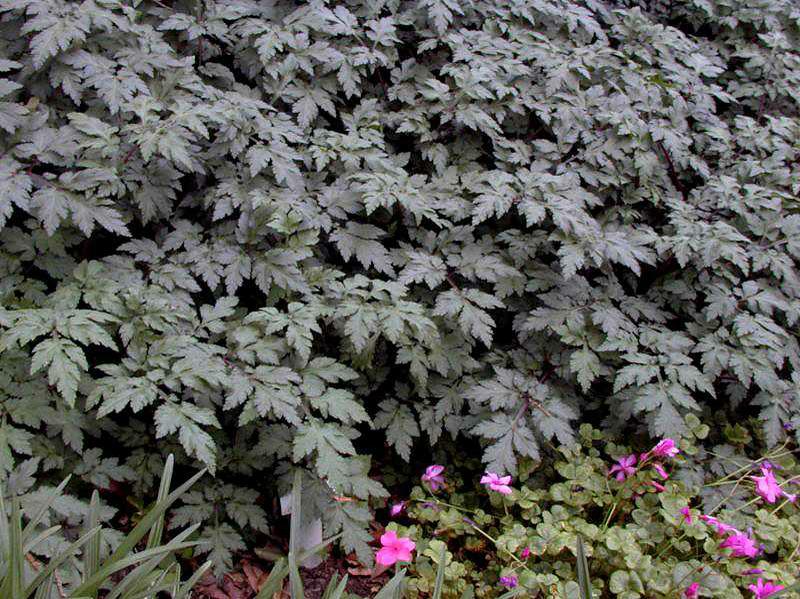White mugwort (Artemisia lactiflora (Guizhou Group))
white mugwort
Artemisia lactiflora, commonly called white mugwort is an erect, clump-forming perennial native to forested slopes, shrubby thickets, stream banks, and roadsides in northern India, China, and Southeast Asia. Mature clumps typically reach 4-5′ tall and spread to fill a 5-3′ area. Features upright, branched, 12-18″, astilbe-like, terminal sprays (loose panicles) of creamy white flowers which bloom atop stiff, stems in late summer. Stems usually do not need staking. Pinnately divided dark green leaves have coarsely toothed segments. Most artemisias have non-ornamental, pale green flowers and are grown primarily for their attractive silver/gray foliage. By comparison, the white mugworts have attractive, creamy white flowers and green leaves.
Genus is named for Artemis, Greek goddess of the moon, wild animals and hunting.
The Guizhou Group of white mugworts originated from seed collected by Kew Royal Botanic Gardens and the Chinese Academy of Sciences in 1985 as part of a joint expedition in the Guizhou province of southern China. This group of plants is distinguished by the dark purple to maroon coloration of its stems and leaves. Synonymous with the cultivar ‘Guizhou’.

Easily grown in evenly moist, well-drained soil in full sun. Prefers rich, moist soils with good drainage.
| Hardiness zone | 3 - 8 |
| Sun light | Full sun |
| Water | Medium |
| Maintenance | Medium |
Rust and powdery mildew are occasional problems. Deer and rabbits tend to avoid this plant.
Border rears, woodland gardens, seaside gardens.
| Common name | white mugwort |
| Botanical name | Artemisia lactiflora (Guizhou Group) |
| Plant type | Herbaceous perennial |
| Family | Asteraceae |
| Hardiness zone | 3 - 8 |
| Water | Medium |
| Maintenance | Medium |
| Flower color | Creamy white |
| Flowering period | August - September |
| Height | 4 - 5 ft. |
| Width | 2 - 3 ft. |